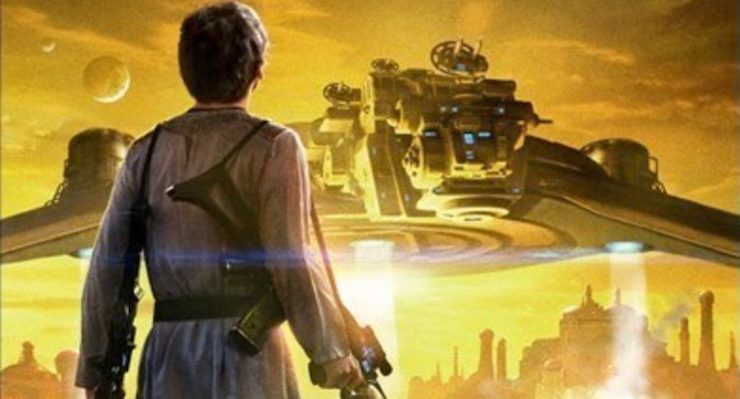The truth is, I’m not really a Space Opera kind of girl. Left to my own devices, I will not-infrequently choose the sort of book that has at least one psychic animal and an ill-advised romantic relationship in it. You don’t see a TON of space in those. Unless you’re reading Anne McCaffrey, and hey, those are some AMAZING cats.
I like not-space. It has great things in it, like gel pens, and cheese and crackers, and a dramatically reduced chance of dying from exposure to hard vacuum. And while I think my personal preferences are important to acknowledge, I am not immune to Space Opera’s charms.
I started blogging my reread of the Vorkosigan series over a year ago. You have to love a work to write a reread blog. Sixteen novels and assorted short stories is a lot of territory to cover in one small chunk a week—it’s like a life commitment here. I’ve said before that, as a young reader, I saw myself in Miles Vorkosigan. And while I do not doubt the strength of the bonds that unite Miles and me across time and space (bonds which are primarily derived from being impulsive and socially awkward) I love the stories because of the ways that they connect the big and the small.
It’s awe-inspiring to think that, somewhere above this planet where we live with the mundane, everyday things—the dirt, the water, the fish, the dogs—there’s a universe full of huge and dramatic things that could be happening just over the edges our perception and understanding. It’s so easy to believe that those things must be important, and therefore we are not. Star Trek seems more dramatic than Little House on the Prairie, even though they’re both stories about struggling to survive while extending the frontier into a hostile environment. When Aral Vorkosigan tells Cordelia Naismith that she has the strength that one looks for in the mother of warriors, I think of Star Wars, not the invasion of Grenada. I know that I can be accused of low-balling the local conflicts here, but that’s the point—going into space tends to make us think that what’s happening at home is small potatoes.
If there’s one thing I have learned from years of teaching history, it’s that potatoes are not small. Once you get your characters into space, it turns out that the world they now inhabit is the distilled essence of the one they left behind. Most of space is cold and dust and distance. Space Opera makes us look at only the things that are important enough to hurl out of the gravity well that surrounds a planet. Some of the mundane trappings of everyday life are lost, and some of them turn out to be much more important to us than we had really understood—algae, newts, farmers, and in its own way, the invasion of Grenada.
We feel like the stakes are higher in space. Everyday survival seems much more exciting up there than it does down here. I don’t spend much time thinking about the newts in my community, you know? I should. We like to ignore little things until they force us to worry about big things. In our everyday existence, that lets us forget the millions of ways in which our tiny lives, with their tiny little individual decisions, have massive impacts. We like to pretend that the stakes are lower for us. It’s reassuring.
It’s also nonsense. Like everything else in the universe, Earth IS in space. Even though we think we’re safe from the dangers that space represents, we’re all always in space. From any point on the surface of this planet, space is only 62 miles away. We let ourselves think that space is far away because Pern is far away. So are the Star Kingdom of Manticore and Beta Colony. We let ourselves think that the rest of space is far away, too, because we want to think that there’s a huge difference between space opera and soap opera. We want to believe that some things are important and some things are not. We like the idea that the macrocosm is completely divorced from the microcosm. There’s nothing wrong with that. There’s no law that says we can only read (or write) the hard SciFi if we believe everything is connected. But the connections are there too, when (if) we need to see them.
The Vorkosigan series is space opera in the really classic style. There are big ships that fight each other with weapons so massive and powerful that they don’t even have to be explained. The most dramatic conflicts take place across huge distances, and involve moving people, ideas, and technology through wormholes that span the Galactic Nexus, and watching how that changes everything. So it’s also about incredibly ordinary things—falling in love, raising children, finding peace, facing death.
That’s where you have to look if you want to watch everything change.
Between the stars and the black holes, what our heroes have is what they brought with them. And what they brought with them is a series of experiments in what is truly important. It’s not only about what humanity needs to survive, it’s a series of questions about what it takes to make us who we are. And however unique our personal and individual struggles may be, we’re all together in being alone in the cold vast dark.
Top image: The Warrior’s Apprentice cover art by Paul Youll; Baen Books, 2016
Ellen Cheeseman-Meyer teaches history and reads a lot.










